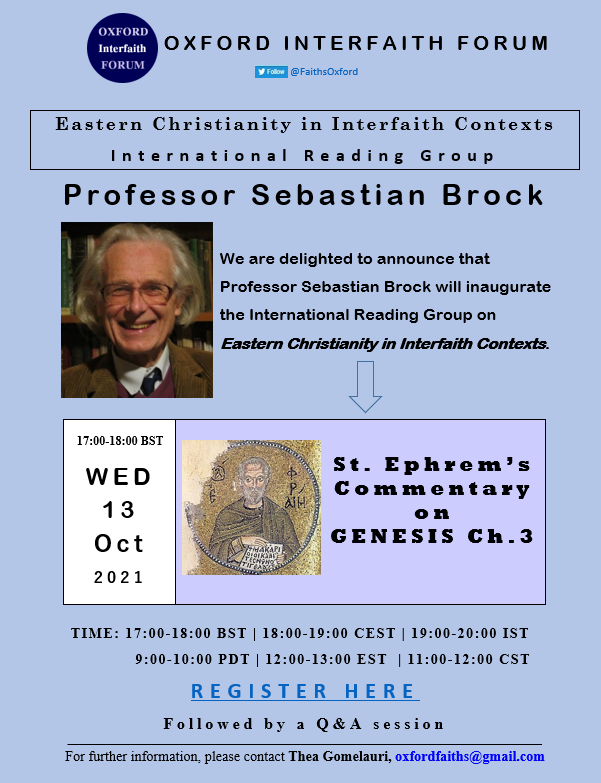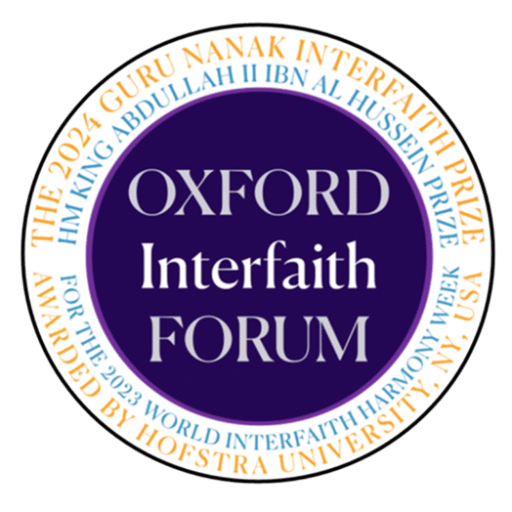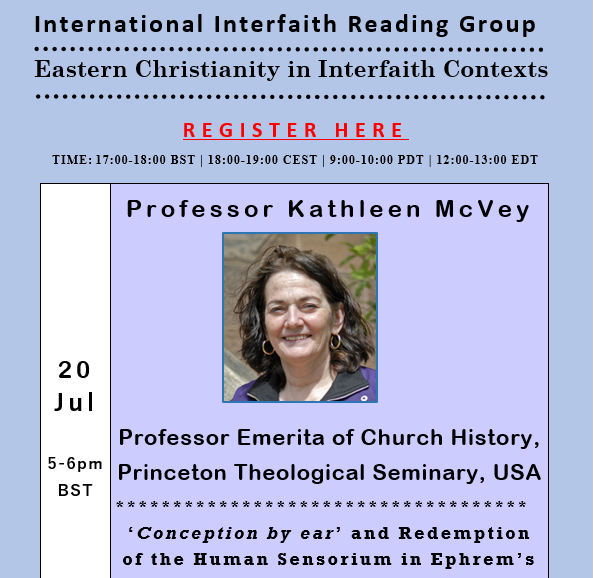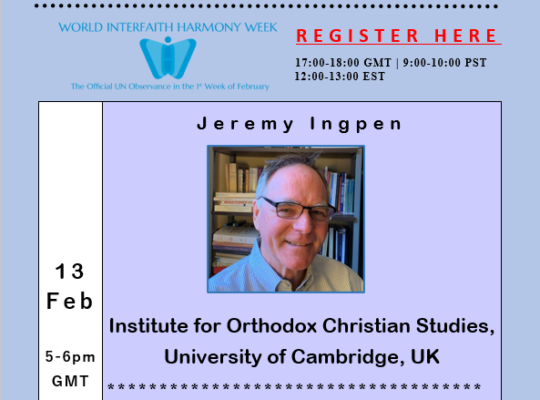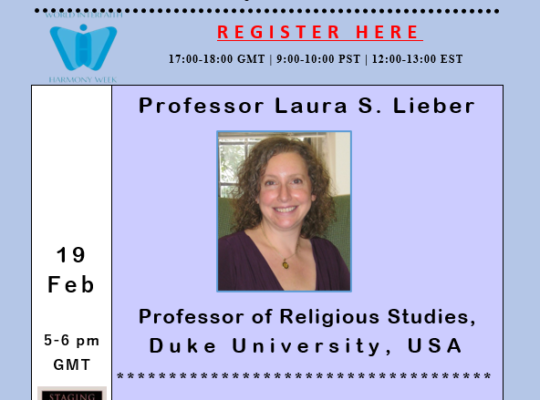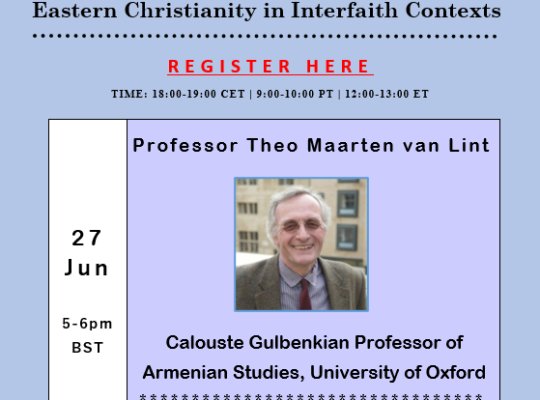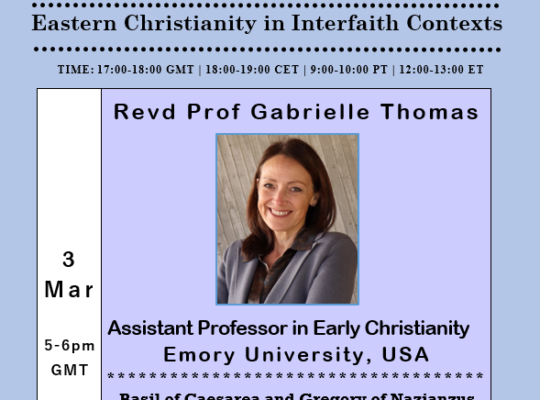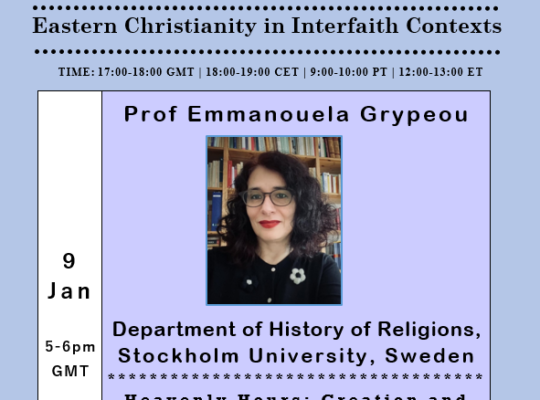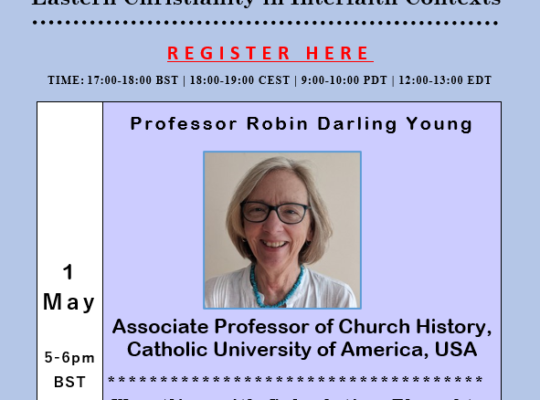20 July, 2023
We are deeply honoured to welcome Professor Kathleen McVey, J. Ross Stevenson Professor Emerita of Church History at Princeton Theological Seminary, USA, to lead a session of the International Interfaith Reading Group on Eastern Christianity in Interfaith Contexts.
Here are the details of this fascinating session.
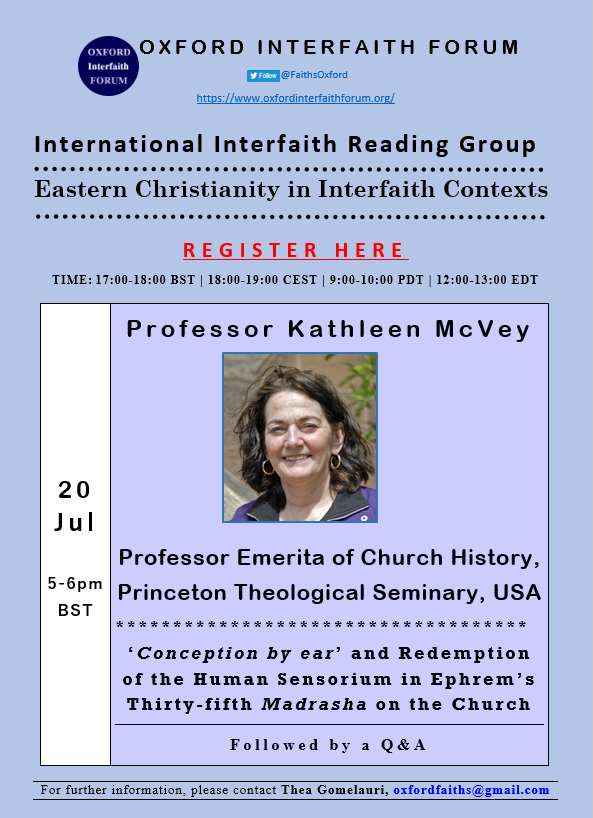
Title: ‘Conception by ear’ and Redemption of the Human Sensorium in Ephrem’s Thirty-fifth Madrasha on the Church
Abstract: The notion of conceptio per aurem occurs several times in the works of Ephrem the Syrian and his school. The theological and literary context of these occurrences varies. I propose here an interpretation of one of those, Madrasha Thirty-Five on the Church, where he unfolds an Eve/Mary typology and a sophisticated understanding of sense perception within a broad soteriological framework. This hymn is challenging to the interpreter. The hymnodist seems to jump unpredictably from one subject to another without clearly connecting his thoughts. By engaging the sequence of ideas through his general understanding of sense perception, however, its fundamental structure emerges. Comparison of Eve and Mary leads to an assertion of the value of subtle intelligence. The listener must then apply subtle intelligence to several verses about the role of the human hand in human achievement. As is true for all the organs of sense, the power underlying this most materially rooted of them is the transcendent faculty, the mind. Both Eve and Mary received information through hearing and seeing. Eve’s foolish reception and response led to human ruin, but Mary’s intelligent reception led directly to the incarnation. Its result is the redemption of the human sensorium – begun at the annunciation and to be completed in Paradise. For Ephrem, in general, the transformation of the human sensorium began with Mary’s conception and pregnancy. It continues through participation in sacramental life. Its fullness will come for the resurrected in Paradise. In this madrasha he explores the need for and the plausibility of this transformation by considering the sensory experience of Eve and Mary. Mary’s conception by ear – the subject of the eighteenth of thirty-five strophes – is the turning point from deliberations on human capacities, their strengths, and their limits, to celebration of salvation for humans, as bodily, sensate beings.
Speaker: Professor Kathleen McVey, J. Ross Stevenson Professor Emerita of Church History at Princeton Theological Seminary, USA.
Speaker’s biography: Kathleen McVey (B.A. Harvard College, Ph.D. Harvard University) is J. Ross Stevenson Professor of Church History, Emerita, at Princeton Theological Seminary. Her principal interests are in the history of Syriac Christianity, its intersections with the broader cultures of Late Antiquity, and its influence on earliest Islam. Many of her publications concern the literary and theological content of hymns, including the symbolic interpretation of architecture in hymnody. She has also contributed to the understanding of the role of women in early Christianity and the use of female metaphors in early Christian literature. Professor McVey is currently completing a study of Ephrem’s construal of conceptio per aurem, and she is also preparing a catalogue of the Syriac manuscripts held by the Princeton Theological Seminary library.
Chair: Professor Sebastian Brock FBA, University of Oxford, UK.
Date: 20 July, 2023.
Time: 17:00-18:00 BST | 9:00-10:00 PDT | 12:00-13:00 EDT
Venue: online
After registering, you will receive a Zoom email containing information about joining the meeting. If you do not see the Zoom email in your inbox, please, check your spam folder.
If you would like to join the Eastern Christianity in Interfaith Contexts Reading Group, please sign up here.
Related Sessions
- The Peshitta and the Making of the Antioch Bible
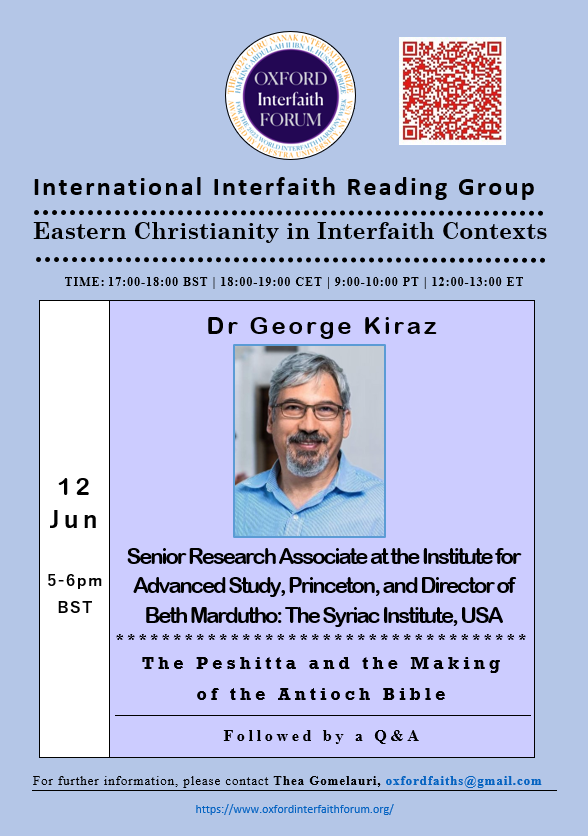
- Narsai’s Memra 49, on Adam and Eve: O Instructive Fault!
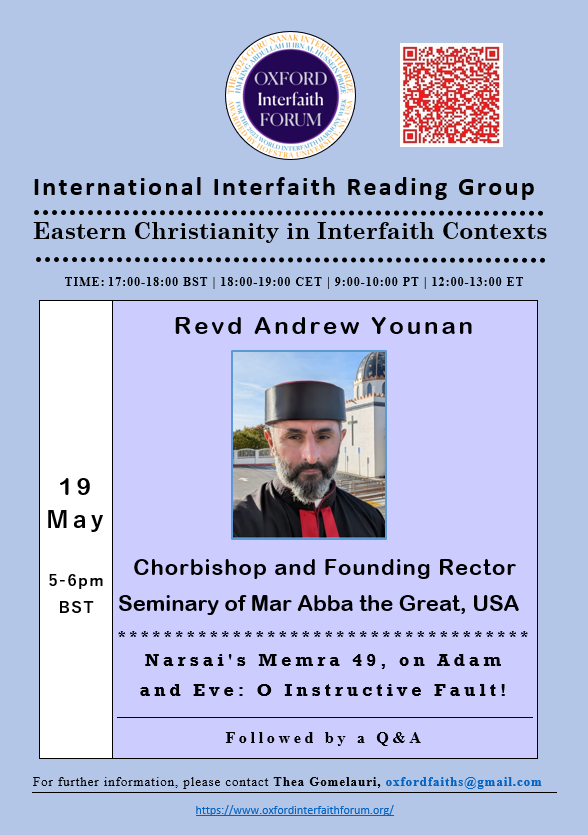
- Basil of Caesarea and Gregory of Nazianzus on the Problem with the Devil
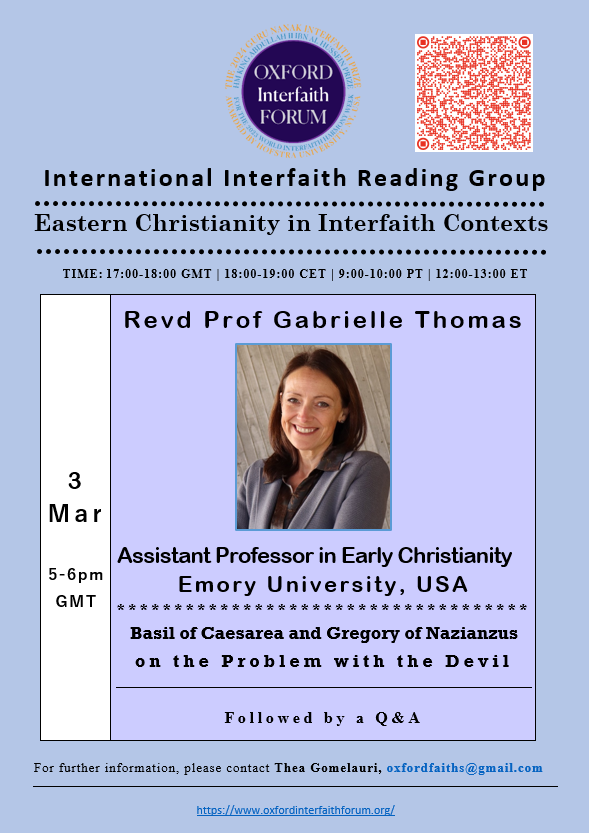
- Byzantine Aristocrat, Monk, Mystic and Dissident: Symeon the New Theologian (949-1022)
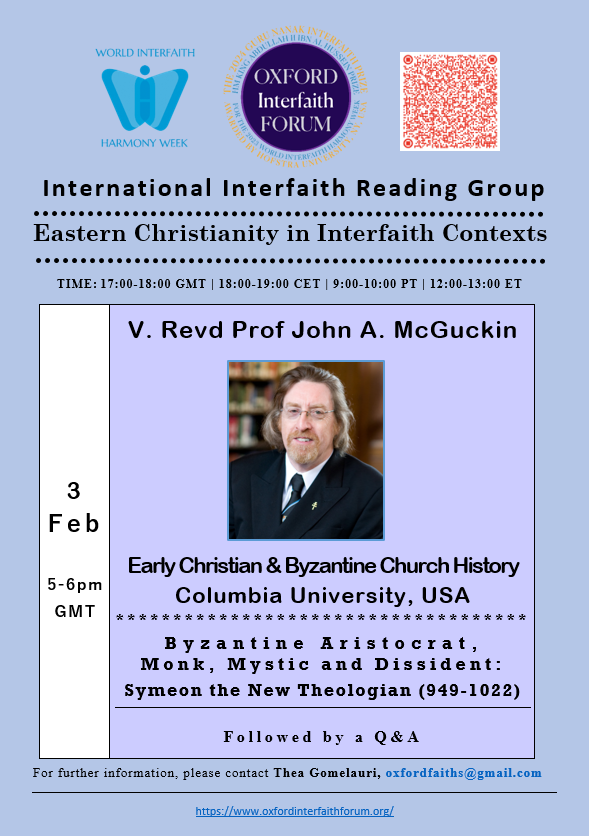
- Heavenly Hours: Creation and Time in the Syriac Testament of Adam
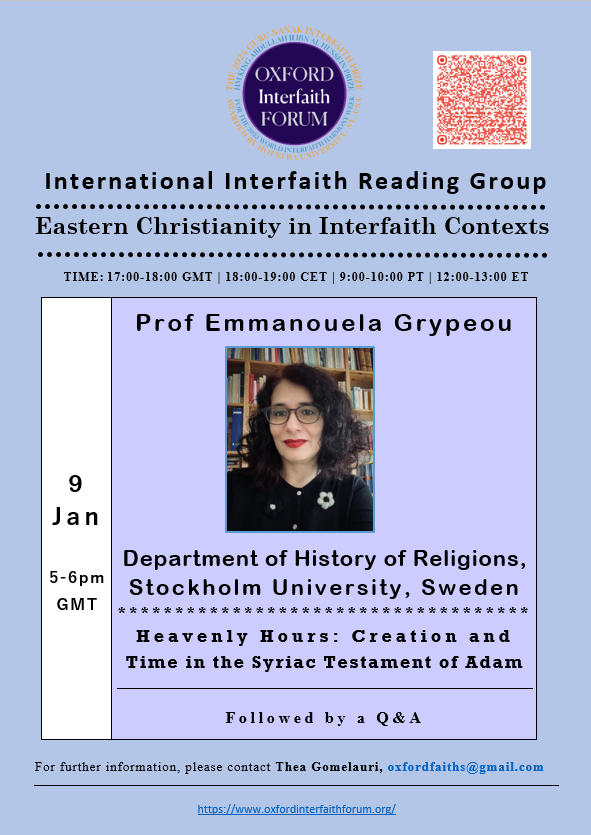
- The Monastic Homilies of Isaac of Antioch
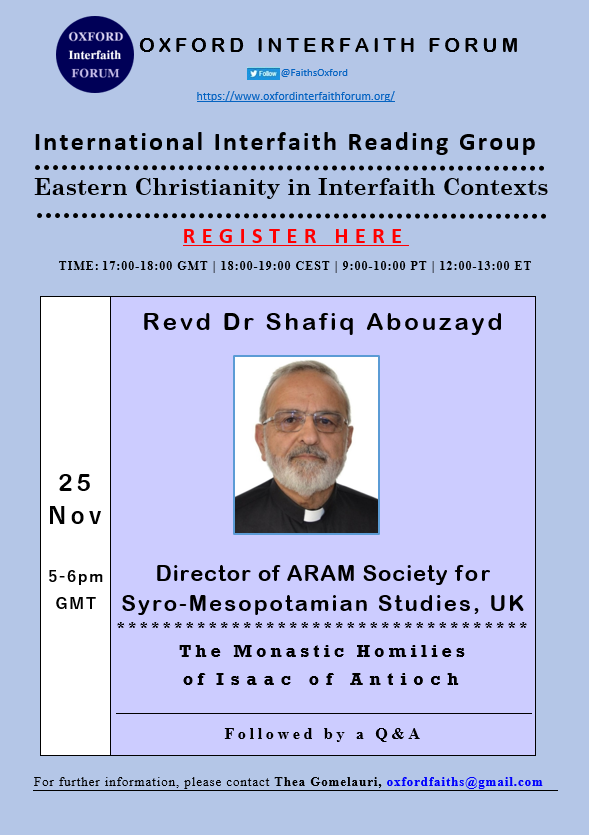
- Christian Trees
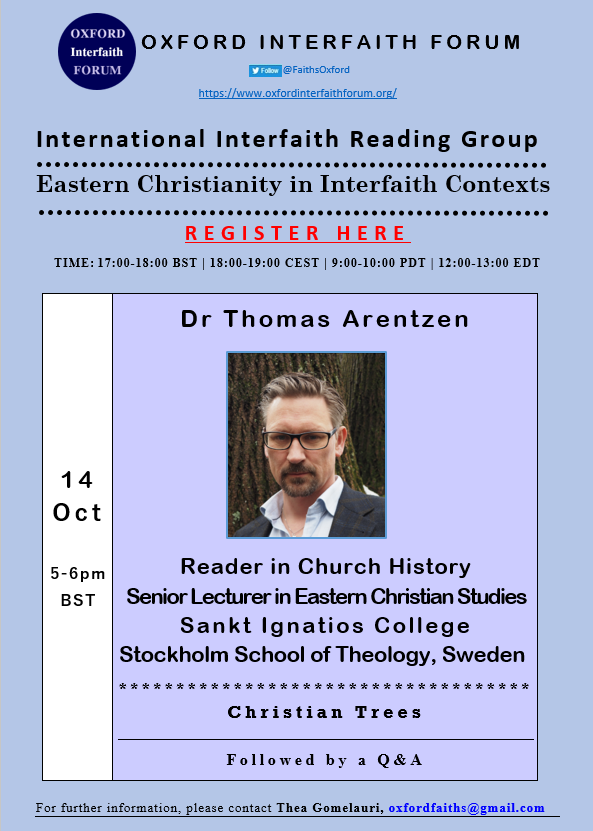
- Dialogue and Fire in a Fragmentary Syriac Martyrdom Narrative
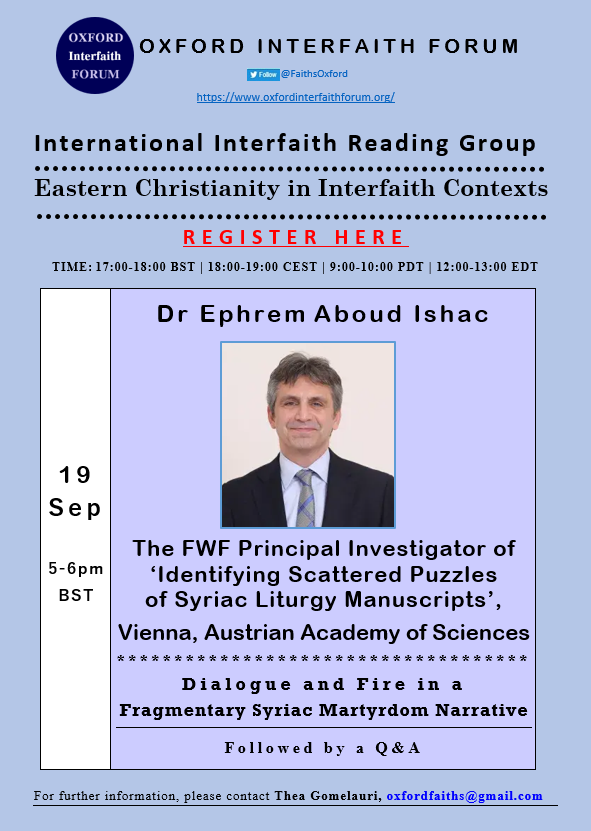
- The Origins of the First Anti-Jewish Good Friday Hymns
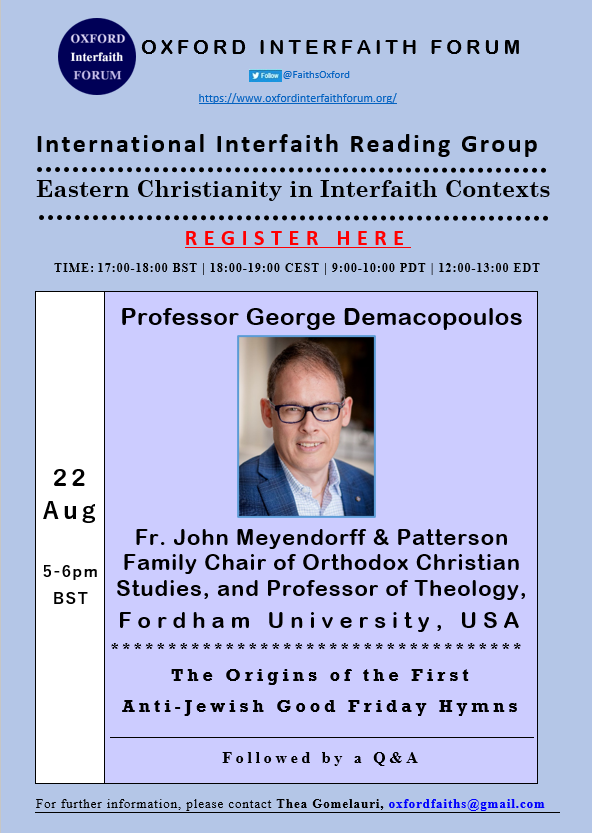
- Finding a Home: The West Syriac Context of the Clementine Epistles on Chastity
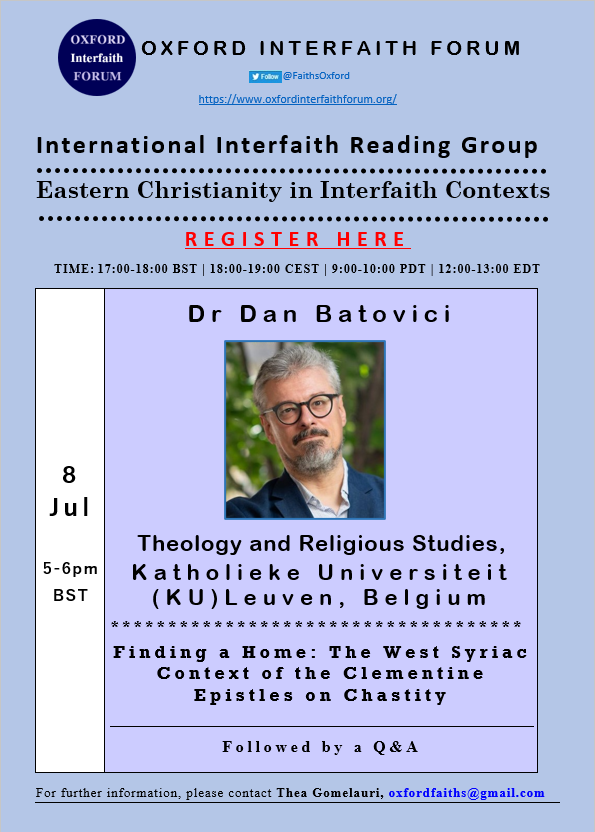
- Who was Mary, the Blessed Virgin and Mother of God? A Byzantine hagiographical narrative by the ninth-century Monk Epiphanios
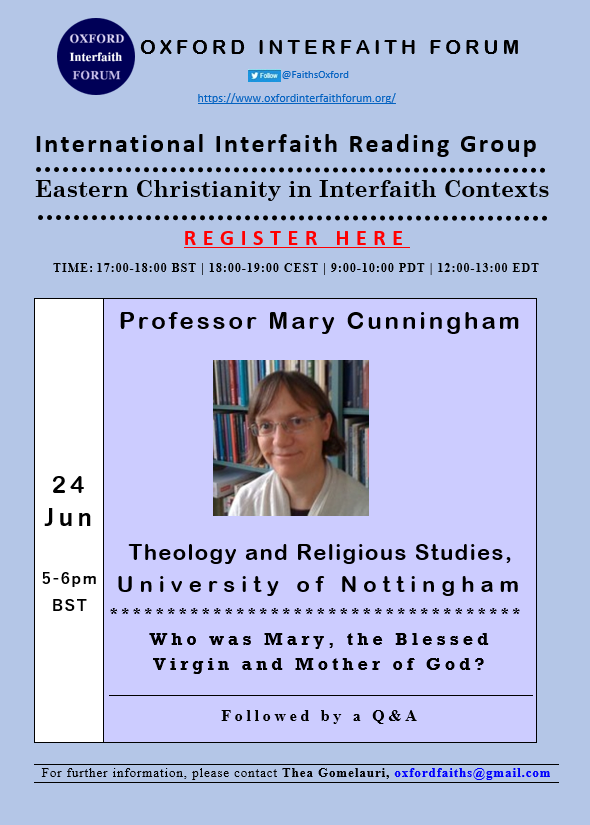
- Nikos Kazantzakis and Orthodox Christianity
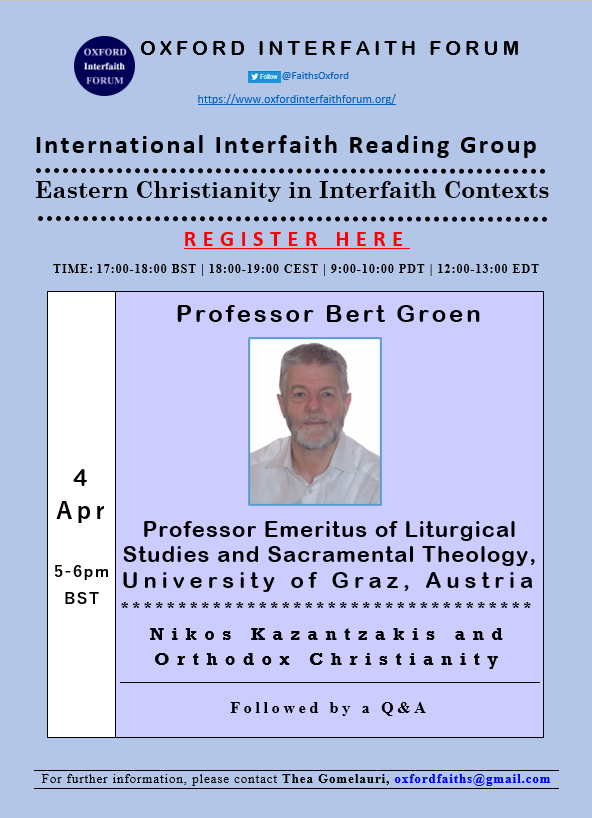
- The Miracle of Pilgrimage: A Coptic Journey to the Holy Land During the Ottoman Period
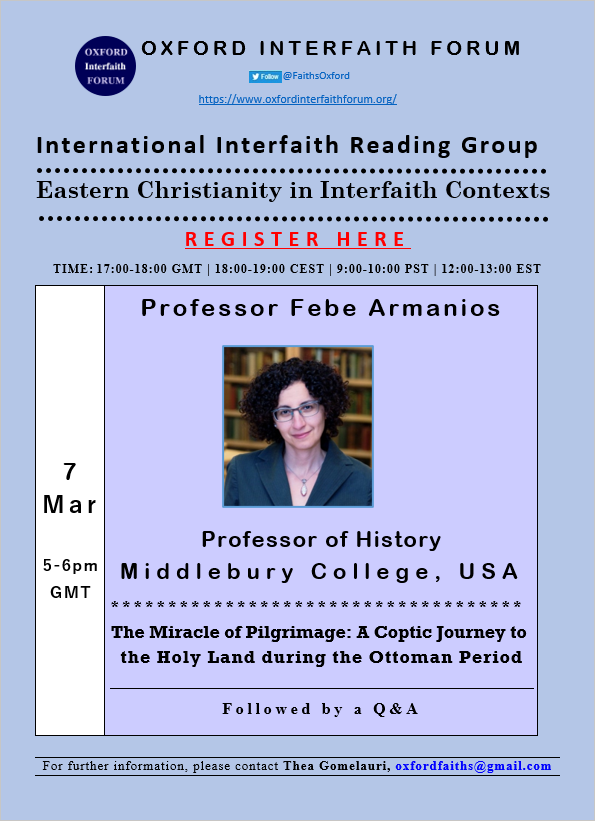
- Setting the Stage: The Rose of Performance in Studying Late Ancient Hymnody
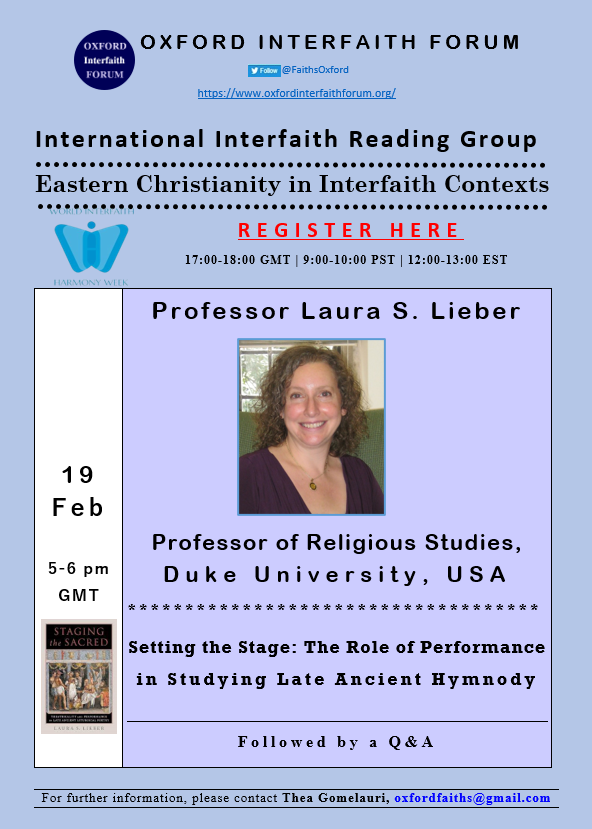
- Ephrem the Syrian and a New Beginning in Syriac Poetry
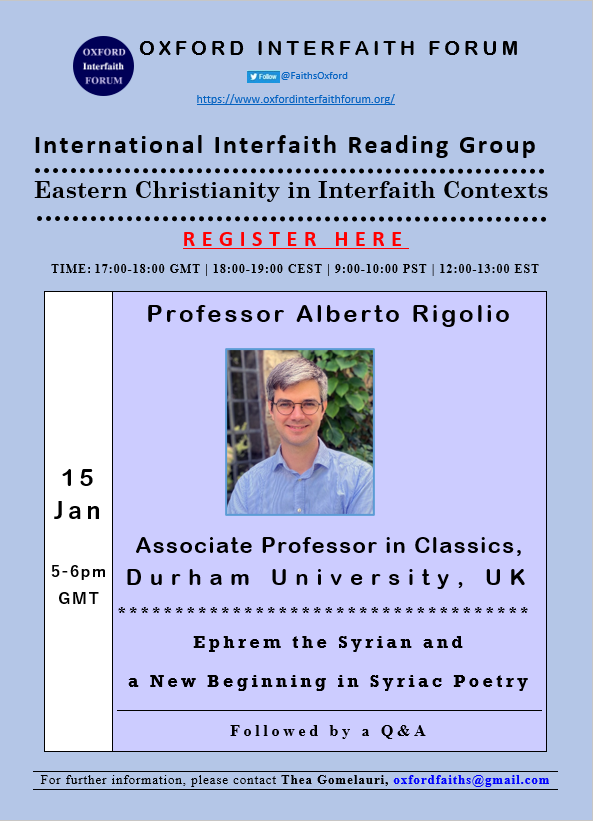
- A Jew Reads the Gospels in Syriac: Azariah de Rossi’s Critique of the Vulgate (1577)
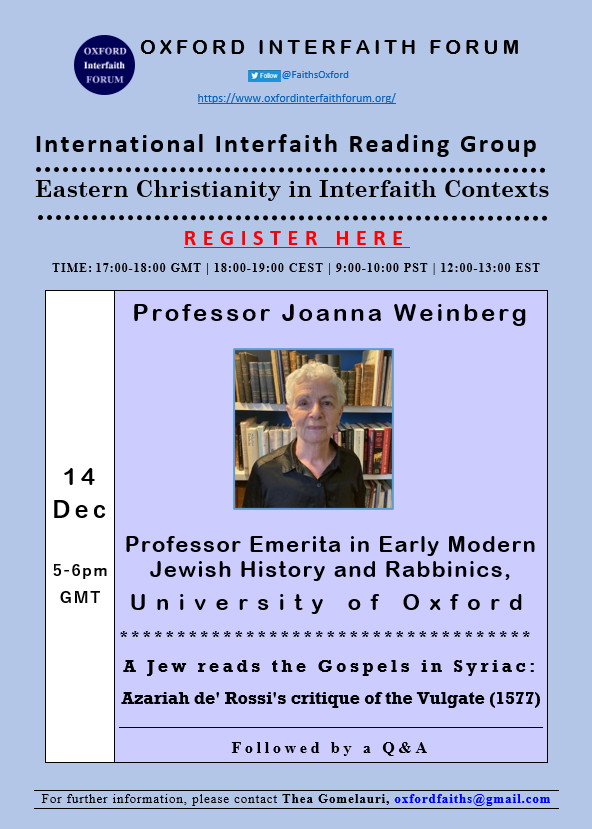
- The Manuscript Project at the Coptic Monastery of St Paul the Hermit at the Red Sea, Egypt
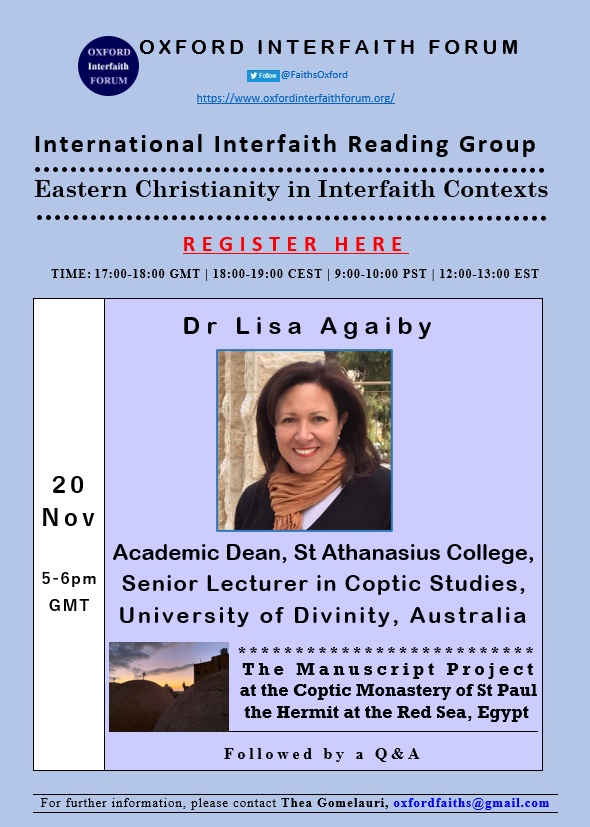
- Mary’s Ordeal: A Syriac Narrative Poem on Many and Joseph
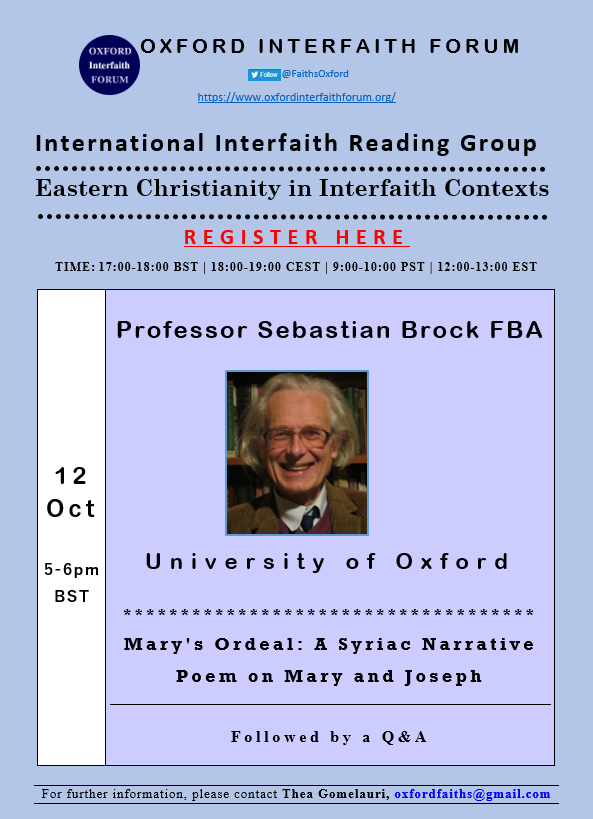
- Resurrection of the Human Body according to John of Dara’s Mimro I:4
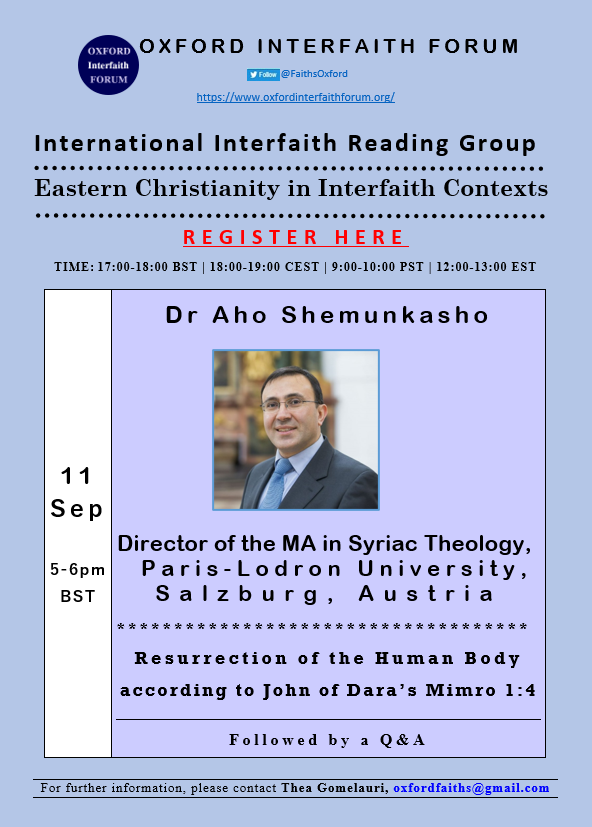
- Gregory of Nyssa: On the Human Image of God
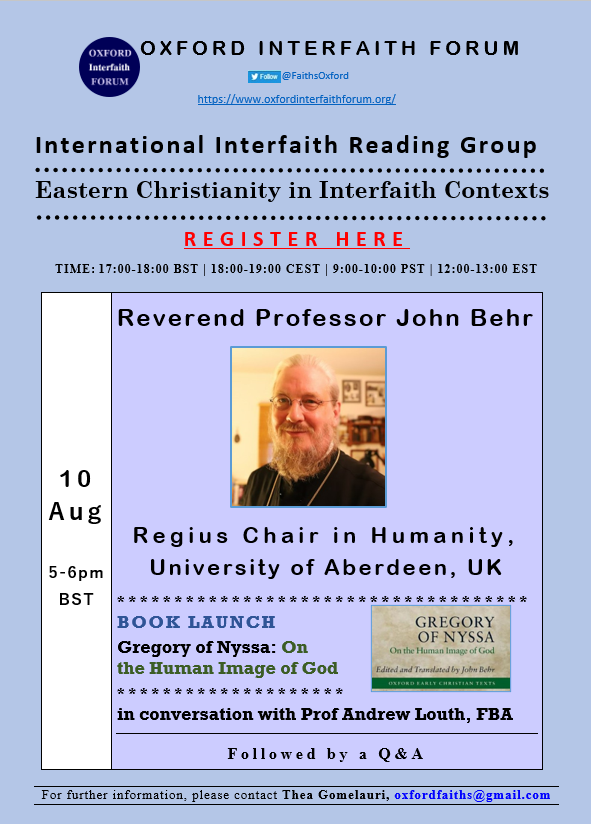
- ‘Conception by ear’ and Redemption of the Human Sensorium in Ephrem’s Thirty-fifth Madrasha on the Church

- From Edessa to South Arabia and Back: The Syriac Story of Bishop Paul and Priest John and Models of Sanctity in the Medieval Middle East
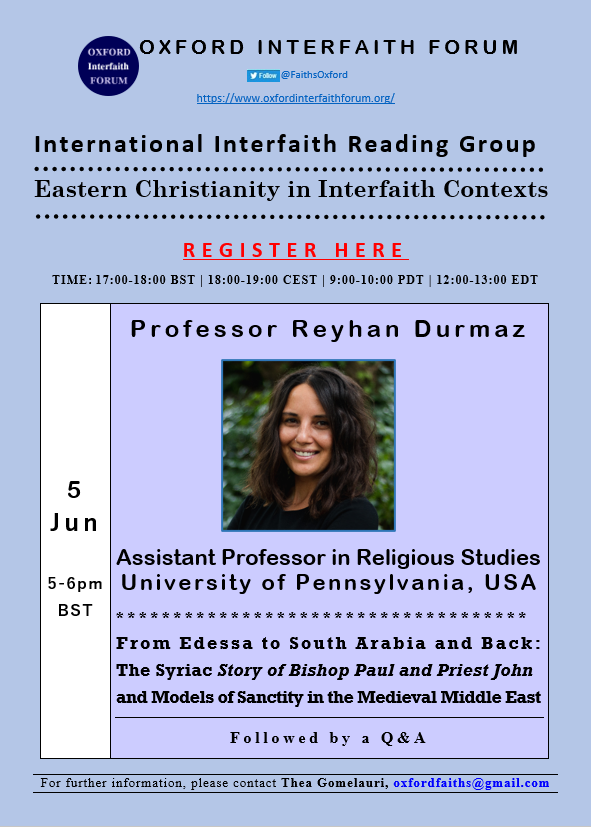
- Wrestling with Calculating-Thoughts: Mental Training according to Evagrius of Pontus

- Returning the Ticket: God and Evil in the Brothers Karamazov
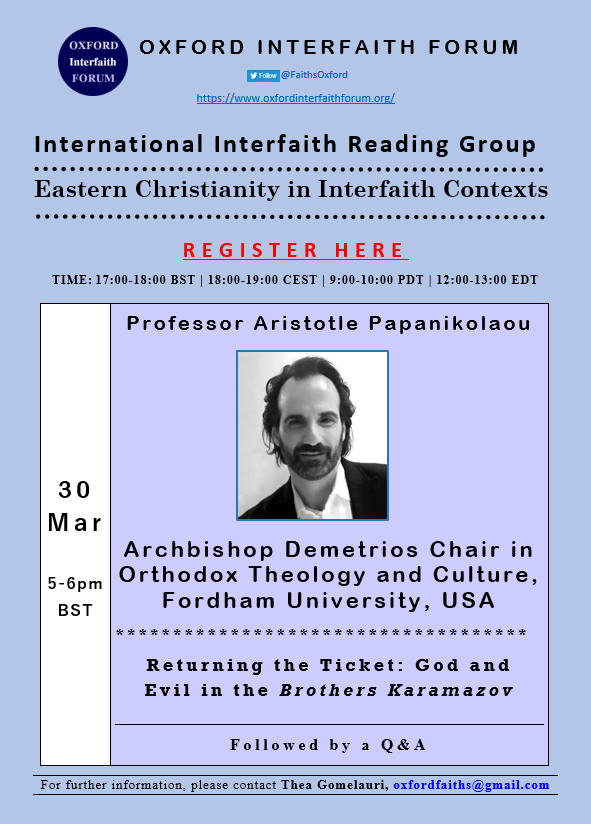
- Ecumenical Patriarch Athenagoras: an Orthodox Dialogue with Islam
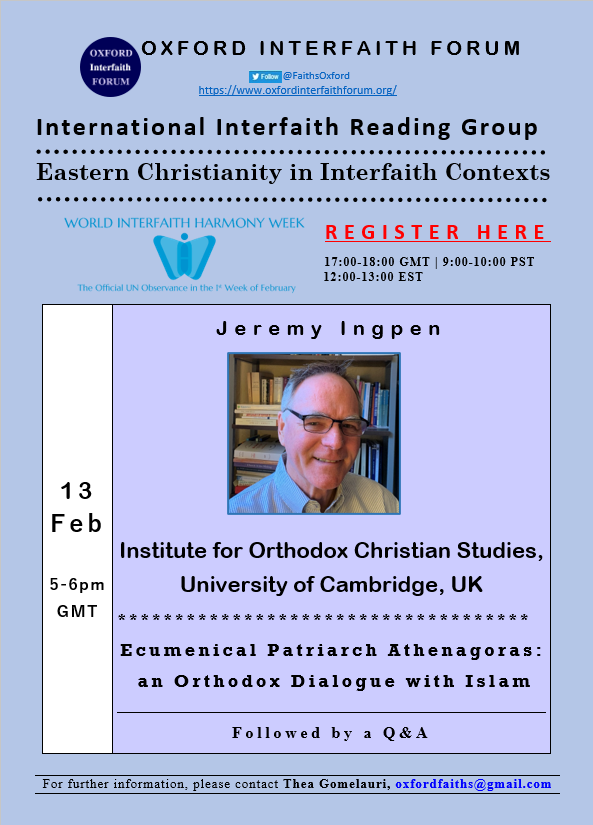
- Matta el-Meskin/Matthew the Poor: a ‘Contemporary Desert Father’ on Christian Unity
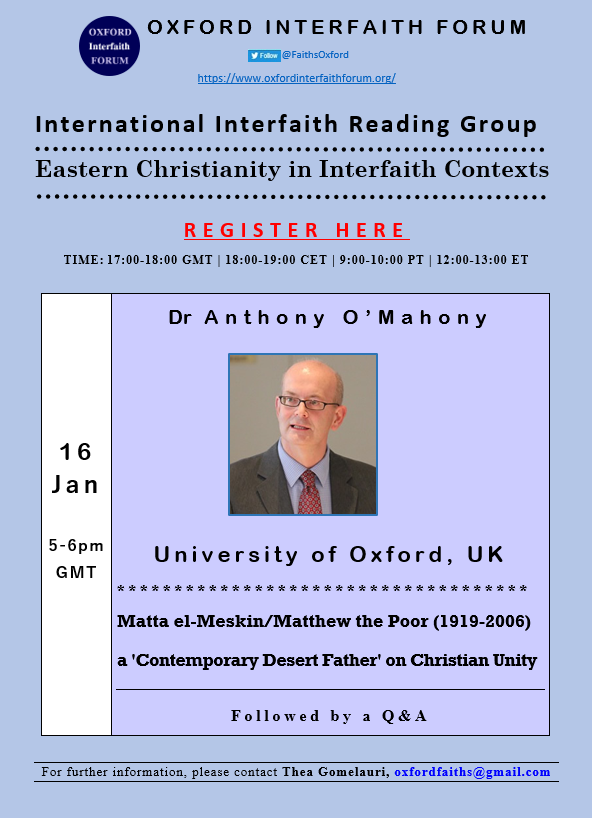
- Signs of Miraculousness: The Inimitability of Jacob of Serugh’s Teaching
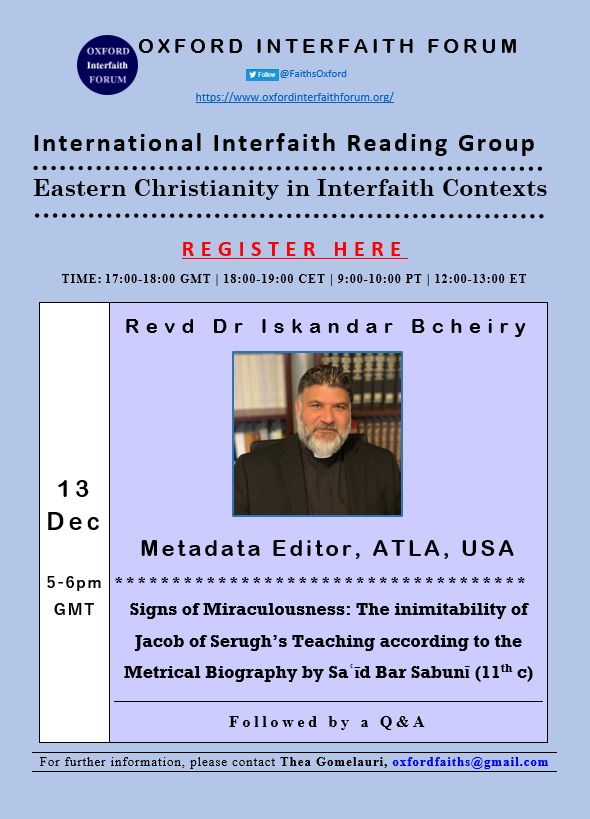
- Epistolary Style in Coptic Letters from the Late Third Century to the Early Fifth Century
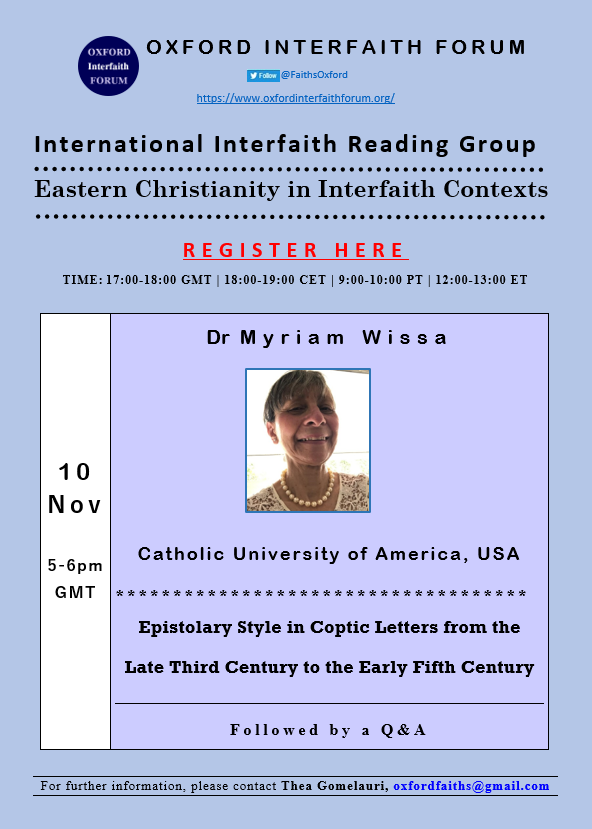
- Sarah and the Akedah: a Syriac Narrative Poem on Genesis 22
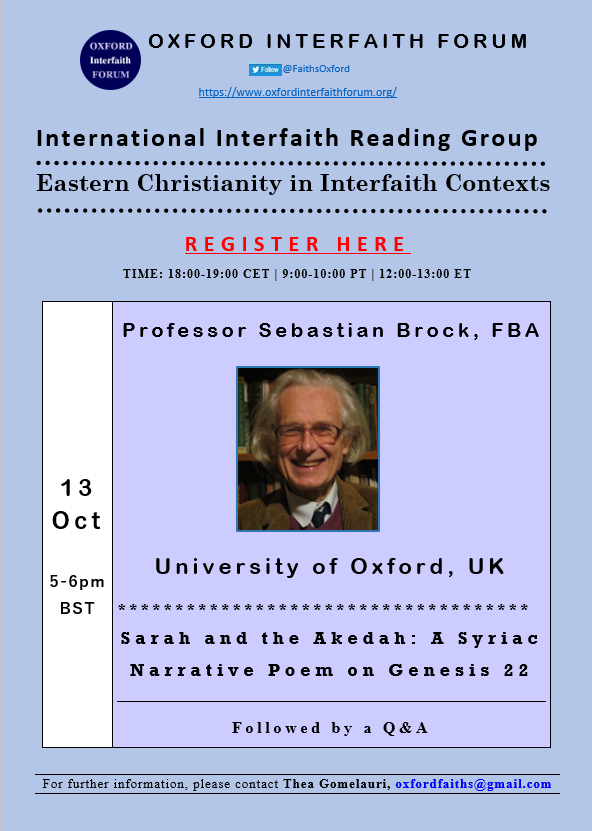
- The Paterik of the Kyivan Caves Monastery: Monk Polikarp in Discourse 14
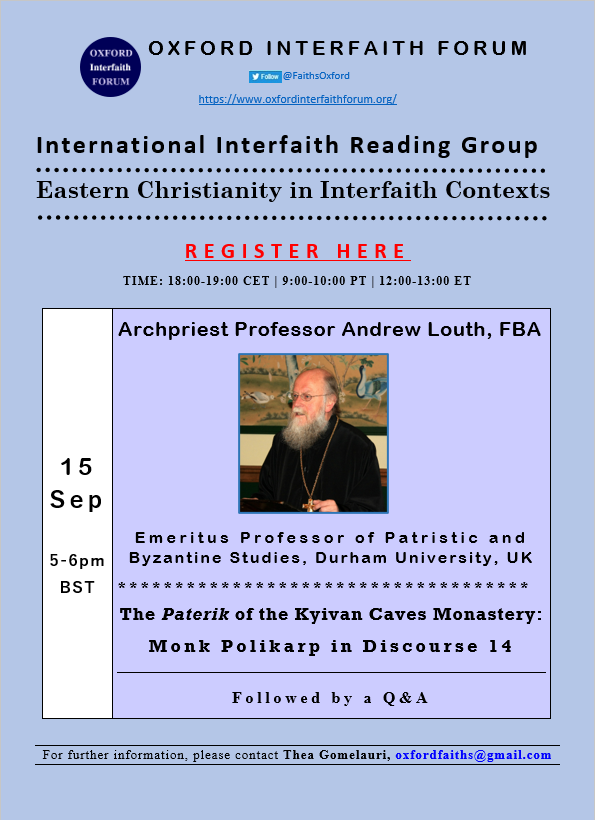
- Jacob of Sarug on the Canaanite Woman (Mt 15:21-28, Mk 7:24-30): Biblical Storytelling and Models of Faith
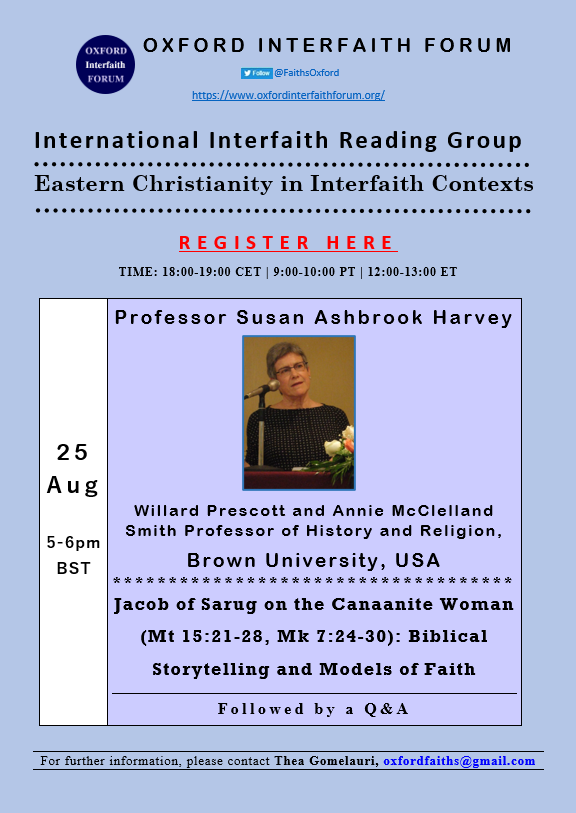
- Commemorating the saints at Turfan: Mart Shir and Mar Barshabba
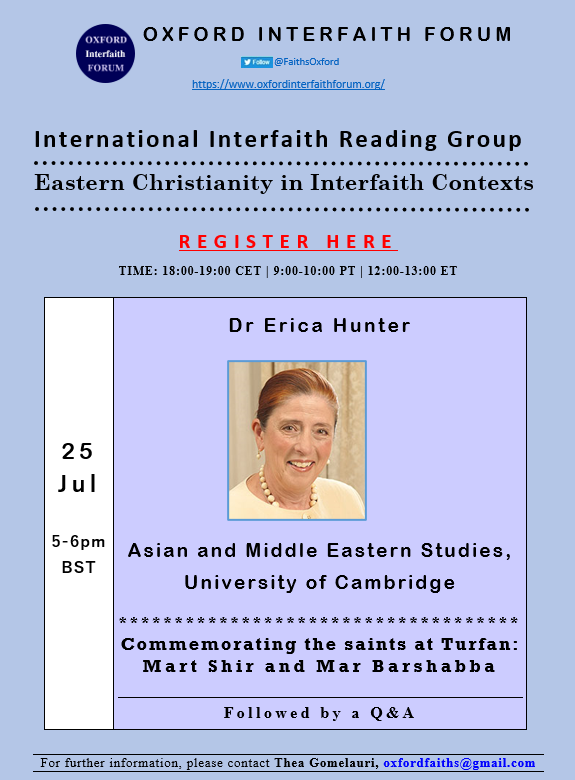
- The Opening Prayers of Saint Gregory of Narek’s Book of Lamentations
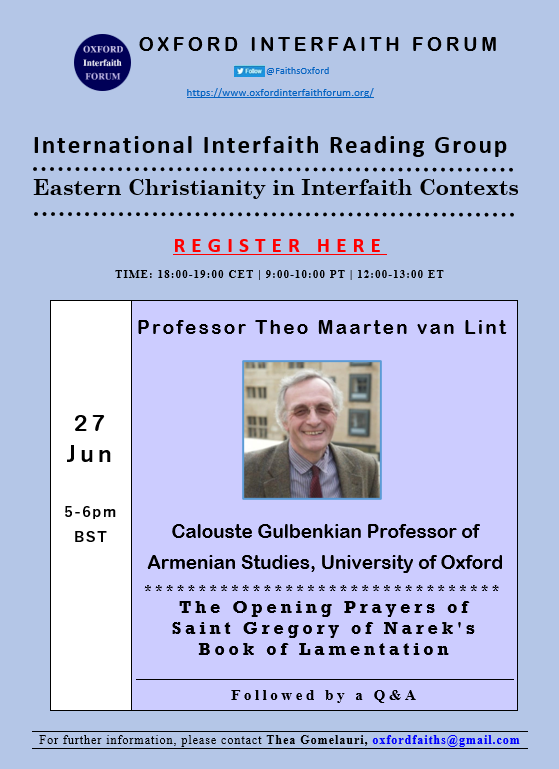
- Alexander Schmemann on Theotokos vis-à-vis Kali a Hindu Mother Goddess
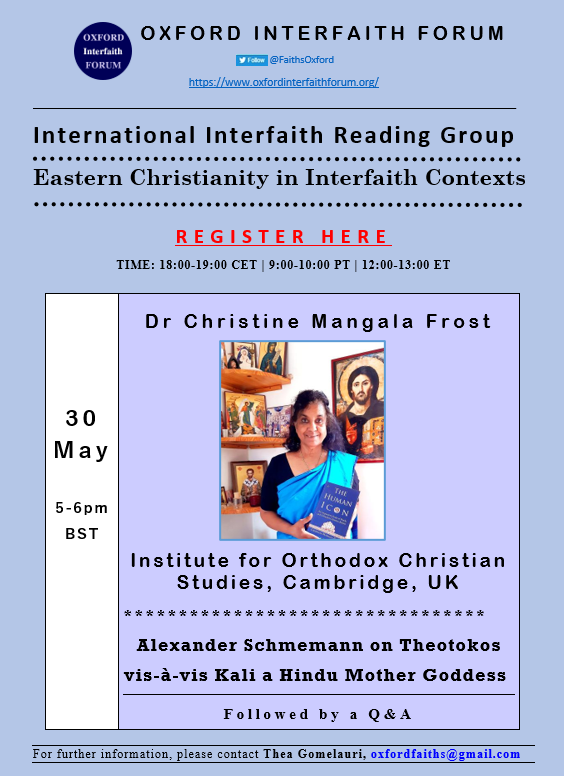
- Enoch and the Fallen Angels in the Ethiopian Tradition
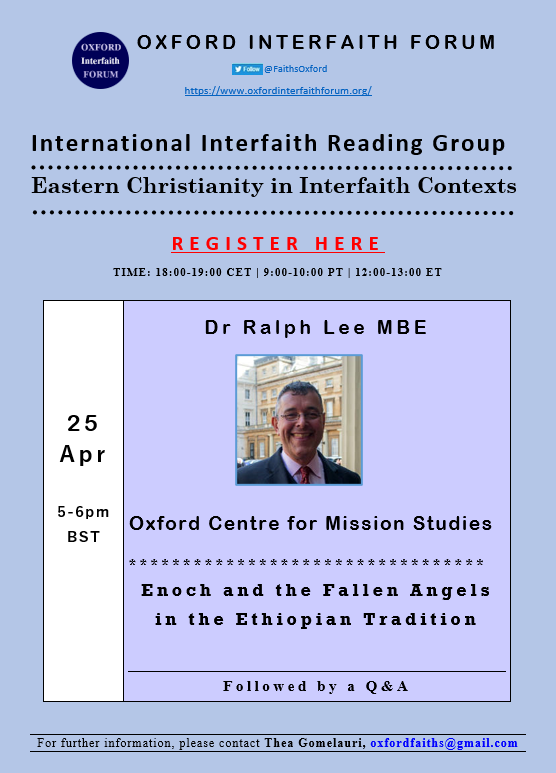
- Narsai on the Virgin Mary
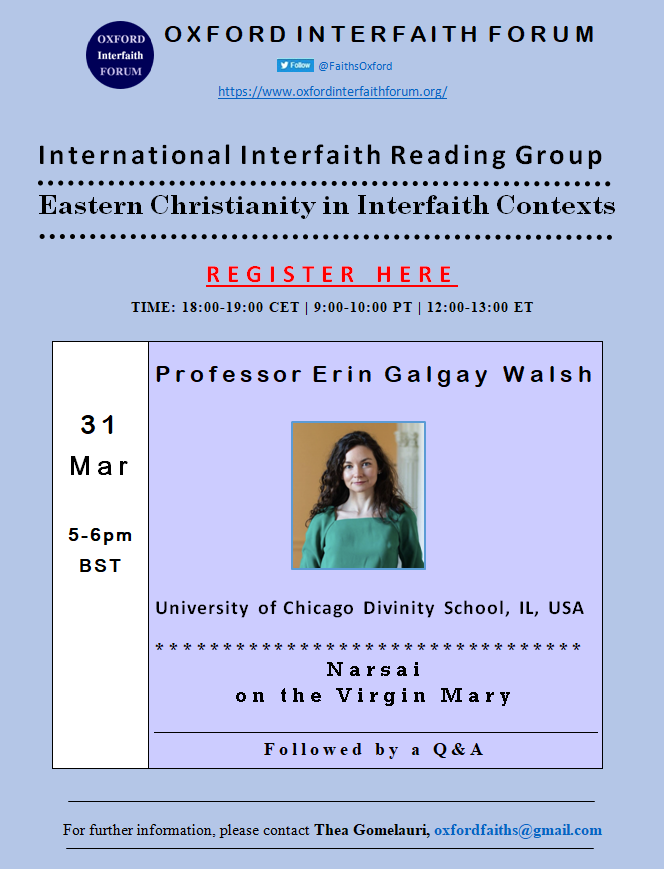
- An Anonymous Syriac Dialogue between Mary and the Angel
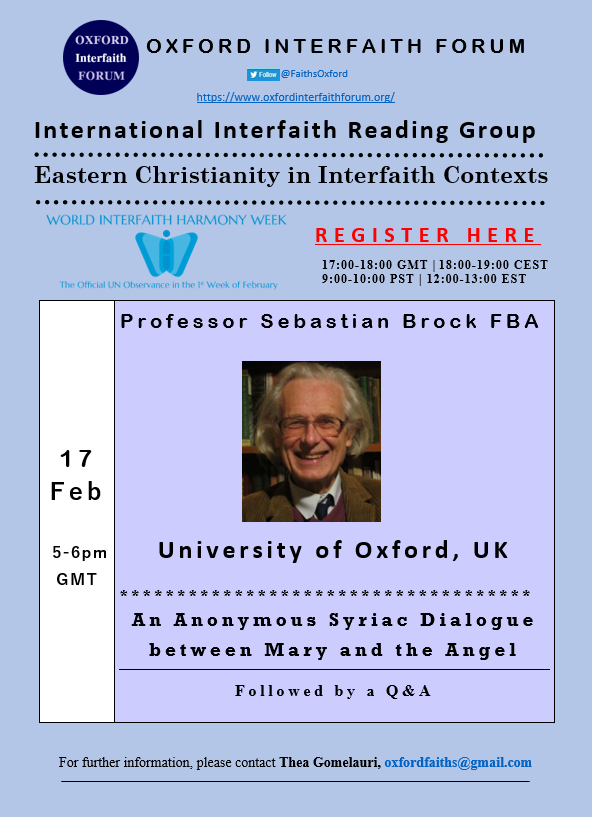
- Dadisho of Qatar: Questioning the Desert Fathers

- George the Athonite on Matters of Faith and Rite, According to the Life of St George the Hagiorite
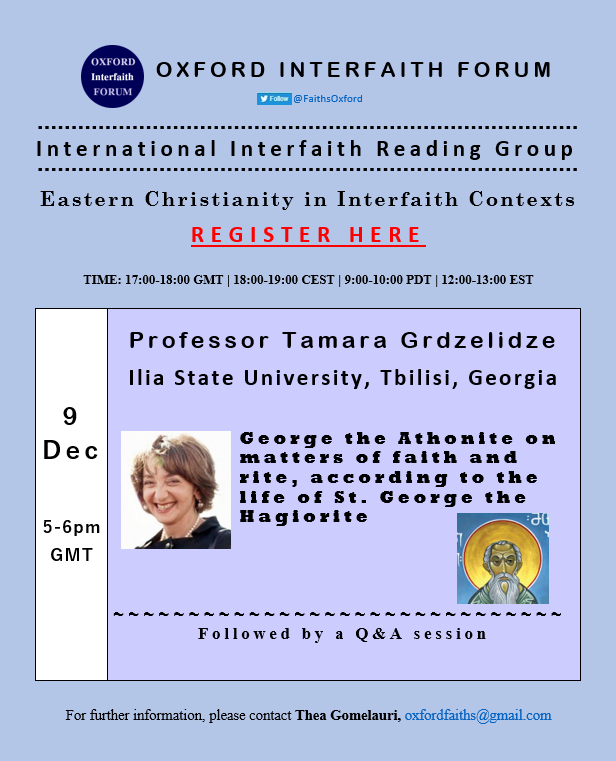
- Temple, Shekhinah and Prayer in Isaac of Nineveh’s III.VIII
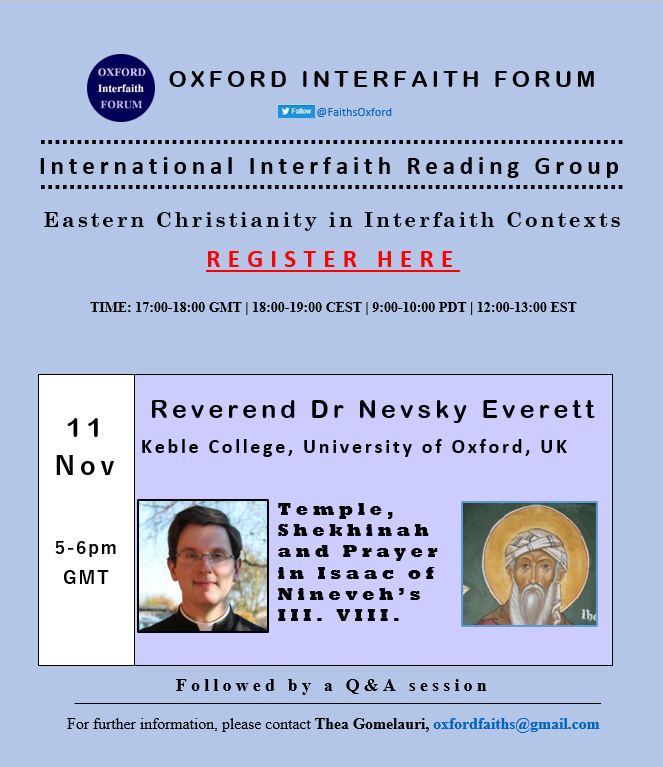
- St. Ephrem’s Commentary on Genesis Ch.3
